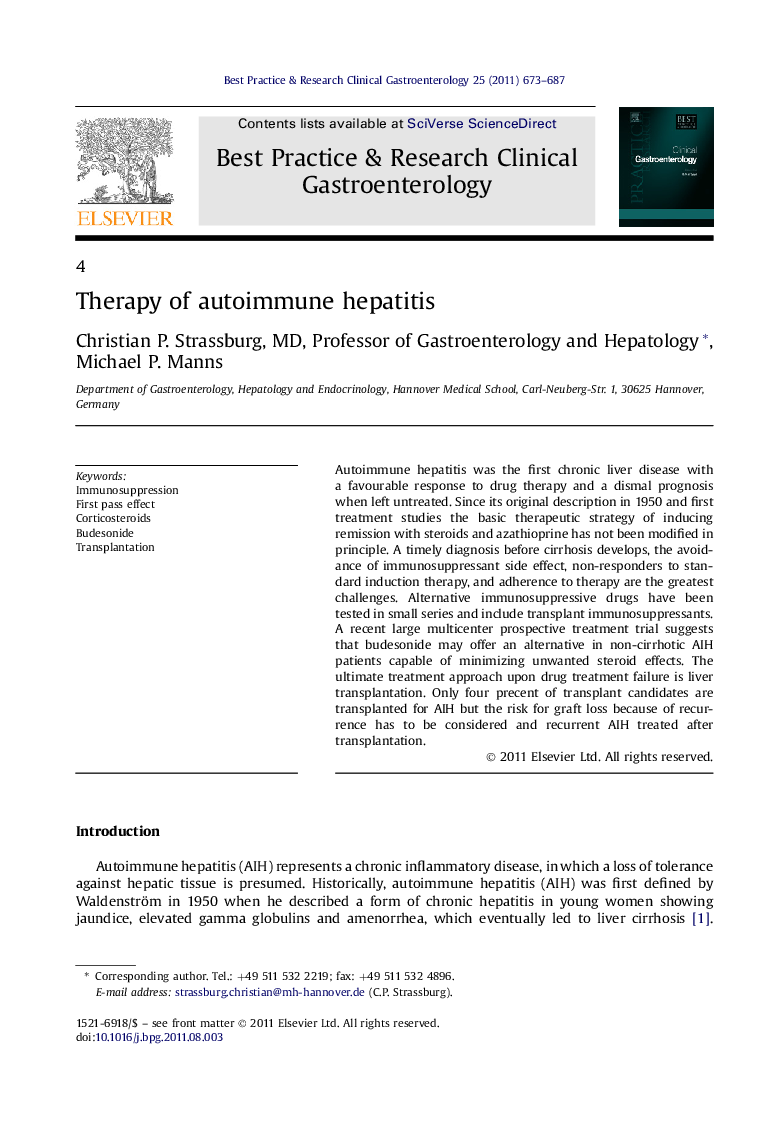| Article ID | Journal | Published Year | Pages | File Type |
|---|---|---|---|---|
| 6086507 | Best Practice & Research Clinical Gastroenterology | 2011 | 15 Pages |
Autoimmune hepatitis was the first chronic liver disease with a favourable response to drug therapy and a dismal prognosis when left untreated. Since its original description in 1950 and first treatment studies the basic therapeutic strategy of inducing remission with steroids and azathioprine has not been modified in principle. A timely diagnosis before cirrhosis develops, the avoidance of immunosuppressant side effect, non-responders to standard induction therapy, and adherence to therapy are the greatest challenges. Alternative immunosuppressive drugs have been tested in small series and include transplant immunosuppressants. A recent large multicenter prospective treatment trial suggests that budesonide may offer an alternative in non-cirrhotic AIH patients capable of minimizing unwanted steroid effects. The ultimate treatment approach upon drug treatment failure is liver transplantation. Only four precent of transplant candidates are transplanted for AIH but the risk for graft loss because of recurrence has to be considered and recurrent AIH treated after transplantation.
